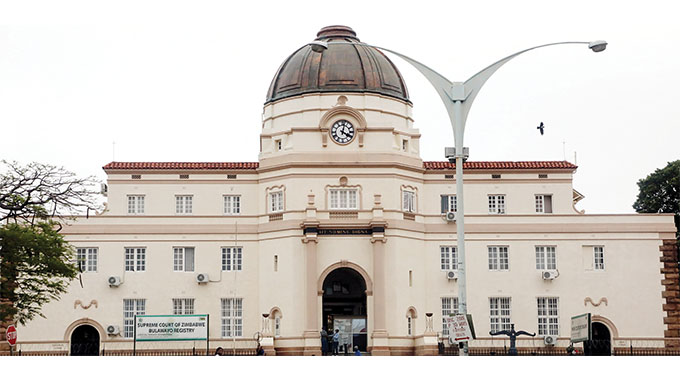Digital transformation pivot to a ‘Smart Zimbabwe’ by 2030

Business Editor
ZIMBABWE is driving at achieving efficiency in electronic (e)-commerce to unlock new business opportunities in line with the Government’s objectives under the “ease of doing business” reform agenda, Information Communication Technology (ICT), Postal and Courier Services Minister, Dr Jenfan Muswere, has said.
The discourse around e-commerce comes on the back of the Fourth Industrial Revolution (4IR), which brings with it many technologies such as artificial intelligence, internet of things, robotics, virtual reality, the cloud, and 3D printing, which present vast opportunities for the entire economy.
The Covid-19 experience has necessitated a drastic shift towards a digital economy as more businesses embrace online transactions with customers also preferring non-contact means of doing business as a protective measure against the deadly pandemic.
In his keynote address at the 2020 edition of the Computer Society of Zimbabwe (CSZ) ICT Summit on Friday, Dr Muswere said Zimbabwe was taking advantage of cutting-edge technology to advance itself and achieve shared interests.
He said the summit, which ran under the theme: “Beyond 4IR: Transitioning from the Pandemic” was more relevant at a time when the country and the world at large are navigating through the Covid-19 experience, which has changed the way of life.
“Digital transformation can be pivoted as a strategy, in not only adapting to the Covid-19 pandemic and its effects, but to take advantage of the new opportunities it presents,” said Dr Muswere.
“One of the most exciting possibilities in this era is achieving efficiency in e-commerce, which is inextricably attached to the Government’s objectives under the ‘Ease of doing business’ initiative.
“It is the next level, which has been accelerated by the pandemic, and all sectors of our economy have embraced, in an impressive fashion, conducting business online. Put together, legal reform in the wake of this Fourth Industrial Revolution landscape is one of my ministry’s top priorities as we set out to expand our reach into the global market through instilling confidence in all stakeholders.”
Digital transformation is at the heart of the push towards an upper middle-income economy by 2030, said the minister, as he stressed the importance of stakeholder involvement as the cornerstone of building a smart economy within the next decade.
He, however, warned that increased utilisation of these technologies also comes with new complexities, particularly in ensuring data protection and privacy, which require strong focus on addressing cyber-security implications.
“This is perhaps one of the biggest puzzles of this time, which my ministry is hard at work resolving, through our efforts directed towards the Cyber Security and Data Protection Bill. The bill is our legislative response to setting the right legal framework upon, which all cyber-security super-structures are to be built,” he said.
“Our vision is to build a robust framework, which is watertight and provides a safe and secure environment to allow enterprises and organisations whose business is now anchored on ICTs to operate efficiently in this peculiar 4th industrial revolution.”
Dr Muswere said the Computer Society of Zimbabwe has contributed immensely towards the national ICT policy framework reviews and has submitted insights and input into the Cyber Security and Data Protection bill.
He said such input was also critical to the newly unveiled National Development Strategy 1, which relies heavily on the employment of ICTs in propelling development initiatives across the divide as enunciated in the country’s national vision 2030.
“In alignment with the National Development Strategy we envisage a digital economy, digital government and an increasingly digital society,” said Dr Muswere.










Comments